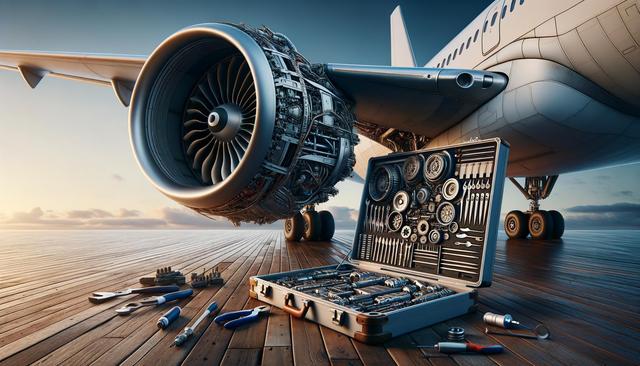The Critical Role of Aviation Mechanics
Aviation mechanics are the backbone of the aviation industry, ensuring the safety, efficiency, and reliability of aircraft operations. These professionals are responsible for diagnosing, repairing, and maintaining aircraft systems, from engines and hydraulics to avionics and environmental controls. The scope of their work affects not only individual flights but also the broader aviation infrastructure, including commercial airlines, cargo transport, and military aviation. With strict aviation standards in place, mechanics must adhere to detailed protocols and regulations that shape how maintenance tasks are performed. These standards are consistently updated, requiring mechanics to stay informed and trained through ongoing participation in Aviation Training Programs.
As aircraft become more technologically advanced, the complexity of maintenance tasks has increased. This evolution has led to a growing demand for skilled mechanics who meet the latest Aviation Training Requirements. Companies supporting aircraft maintenance and repair are investing in updated equipment and training to keep up with industry needs. These organizations often collaborate with aviation schools and training centers to ensure that mechanics entering the field are well-prepared for the challenges they’ll face on the job.
Companies Supporting Aircraft Maintenance and Repair
Numerous companies specialize in providing maintenance, repair, and overhaul (MRO) services. These companies play a significant role in maintaining global aviation standards by operating certified facilities and employing technicians trained in Aircraft Maintenance Training. Their services range from scheduled inspections and part replacements to full engine overhauls and avionics upgrades.
Key areas where these companies contribute include:
- Routine line maintenance at airports
- Heavy maintenance checks requiring aircraft disassembly
- Component testing and calibration
- Emergency repairs and troubleshooting
To support these operations, firms often partner with training institutions that offer Aviation Safety Training United States to ensure all personnel are equipped with the latest knowledge in aviation risk mitigation. These partnerships are essential to maintaining a skilled workforce that can handle the rigorous demands of the aviation sector. Furthermore, the rise of digital maintenance systems and predictive analytics has pushed MRO providers to seek technicians with both mechanical expertise and digital literacy.
The Importance of Aviation Safety Training
Safety is paramount in all aspects of aviation, and this is especially true in aircraft maintenance. Aviation Safety Training United States programs are designed to instill a culture of safety among mechanics and technicians. These programs cover regulatory compliance, handling hazardous materials, working in high-pressure environments, and emergency response procedures. By embedding safety into the core of all training, the industry helps reduce human error, which remains a leading cause of aviation incidents.
Effective safety training emphasizes:
- Identification and mitigation of potential hazards
- Proper use of personal protective equipment (PPE)
- Understanding of maintenance documentation and records
- Communication protocols during critical maintenance operations
For companies involved in aircraft repair, ensuring their staff undergoes continuous safety education is not just a regulatory requirement—it also enhances operational efficiency and protects their reputation within the Aviation Training Industry. Maintenance errors can have serious consequences, and safety training is one of the most effective tools in preventing them.
Training Pathways and Career Outlook
Careers in aviation mechanics typically begin with enrollment in accredited Aviation Training Programs that provide both classroom instruction and hands-on experience. These programs cover topics such as aircraft structures, propulsion systems, avionics, and inspection techniques. To qualify for certification, students must meet specific Aviation Training Requirements, including a set number of training hours and passing written and practical exams administered by regulatory authorities.
Graduates of these programs can pursue various Aviation Training Jobs, such as:
- Airframe and powerplant (A&P) mechanics
- Avionics technicians
- Maintenance planners
- Quality assurance inspectors
The demand for skilled aviation mechanics is growing, driven by an expanding global fleet and heightened focus on maintenance standards. As such, job prospects in the Aviation Training Industry remain strong, with opportunities for advancement into supervisory or specialized technical roles. Additionally, ongoing education is often required to maintain certifications, especially as new aircraft technologies are introduced.
Looking Ahead: Challenges and Opportunities
The aviation maintenance sector faces several challenges, including a shortage of qualified technicians, the need to adapt to evolving technologies, and the pressure to meet increasingly stringent regulatory requirements. However, these challenges also present opportunities for innovation and growth. Investment in new Aircraft Maintenance Training platforms, such as virtual reality simulations and online learning modules, is helping to modernize the way training is delivered.
Future advancements in the field may include:
- Integration of artificial intelligence in diagnostic tools
- Use of drones for aircraft inspections
- Predictive maintenance using real-time data analytics
- Development of hybrid and electric aircraft technologies requiring new maintenance skills
To stay competitive, companies and training institutions must work together to prepare technicians for these changes. This includes not only updating curricula but also promoting career awareness among younger generations who may not be familiar with the rewards of aviation mechanic careers. The ability to adapt and innovate will be key to the success of the Aviation Training Industry in the years ahead.
Conclusion: Building a Stronger Future for Aviation Maintenance
For individuals seeking a technical career with long-term potential, aviation maintenance offers a pathway grounded in skill, responsibility, and advancement. Through comprehensive Aviation Training Programs, professionals are equipped to meet evolving Aviation Training Requirements while contributing to the overarching goal of safe and reliable air travel. The collaboration between companies supporting aircraft repair and the broader Aviation Training Industry ensures that both current and future aviation mechanics are prepared for the demands of this critical profession. With continued investment in Aircraft Maintenance Training and a commitment to high safety standards, the industry is well-positioned to meet the challenges of tomorrow’s aviation landscape.




Leave a Reply